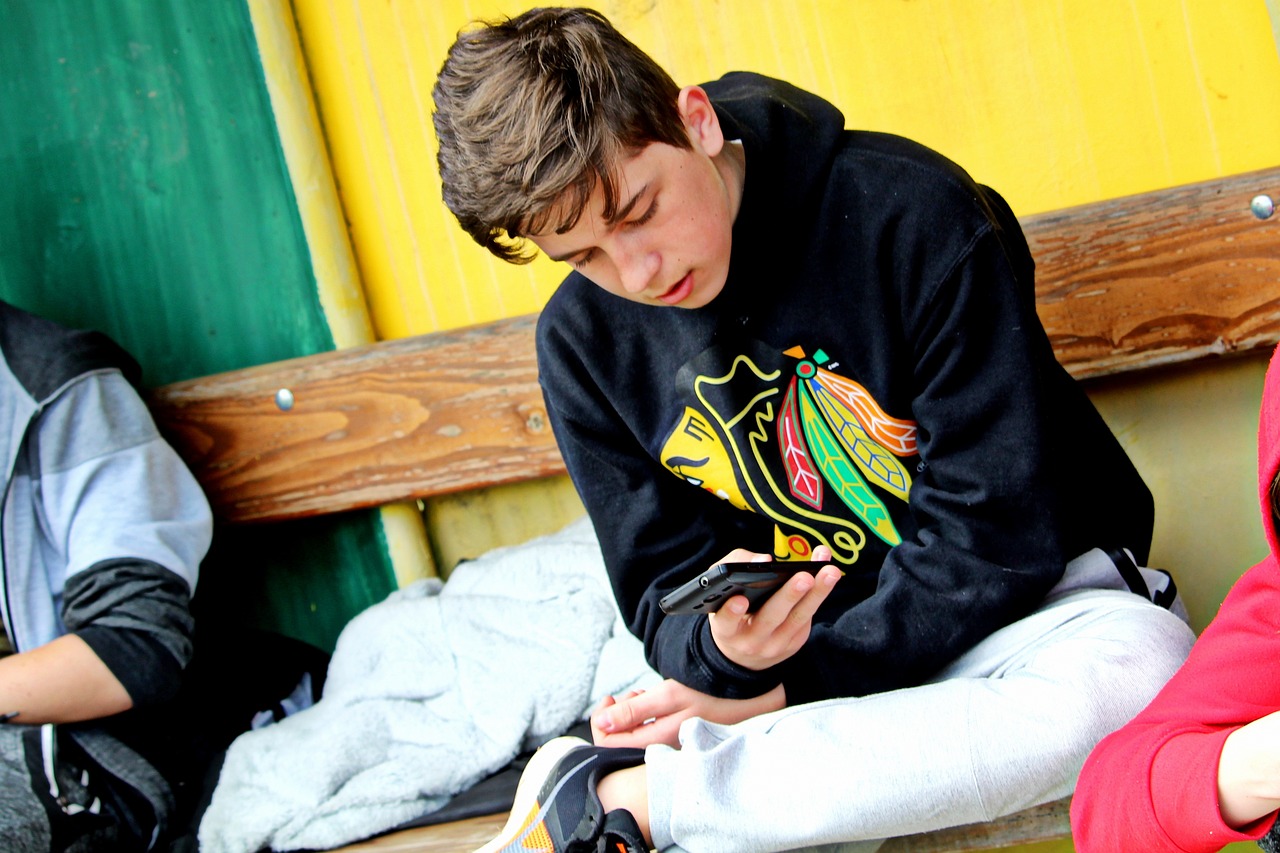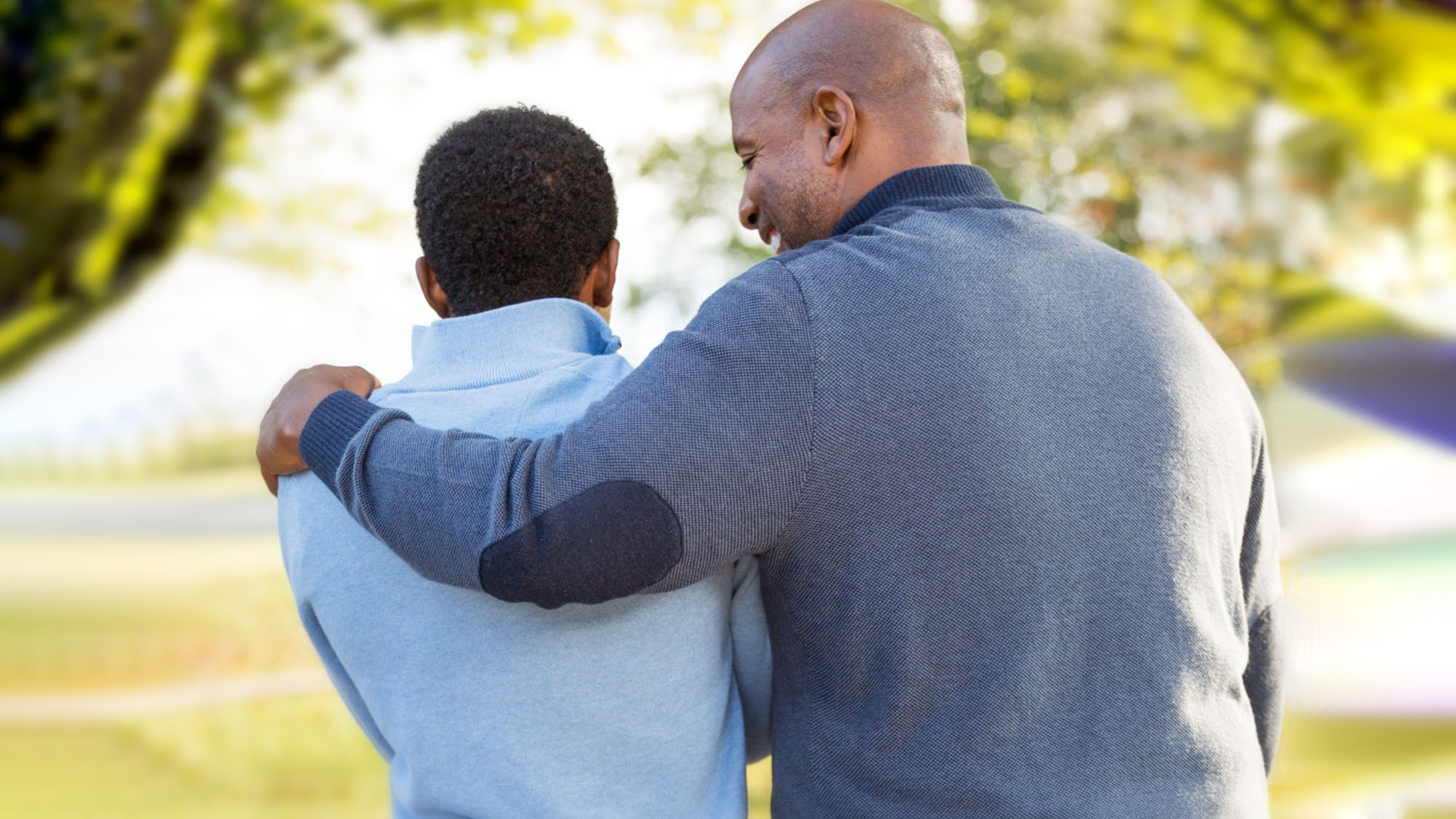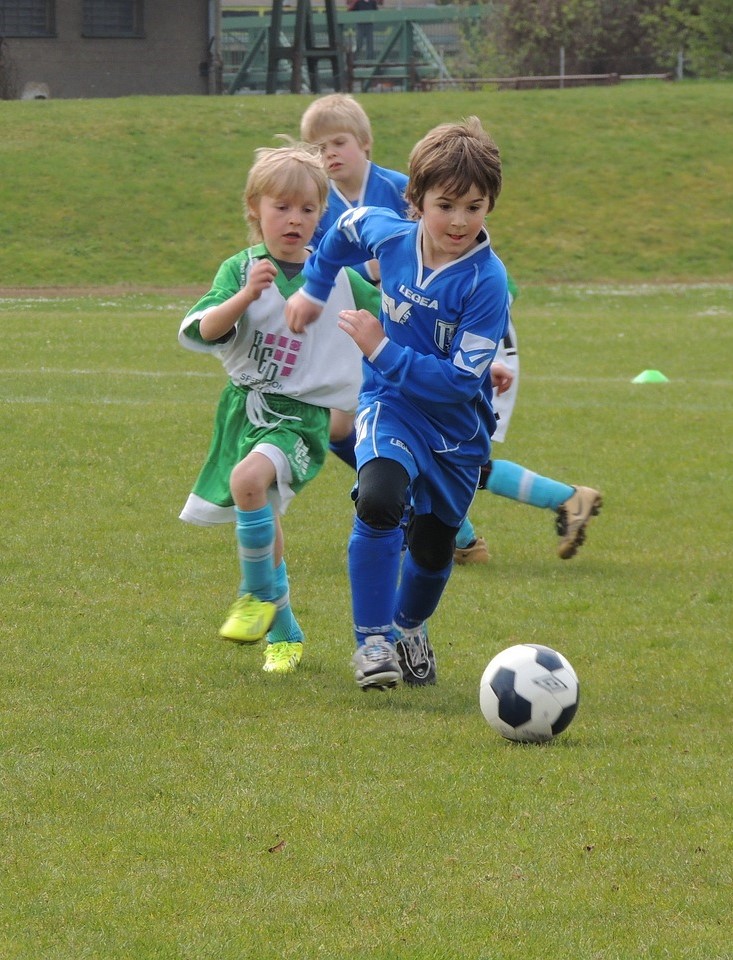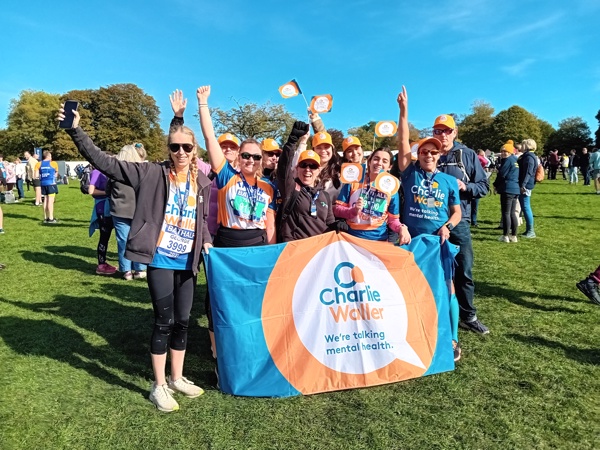Boys' mental health: male role models, sports and hobbies
November 27 2024

The theme for International Men’s Day this year was ‘Positive Male Role Models’ - an opportunity for us to consider how we can enable the boys and young men in our care to receive the understanding and support that they deserve in order to thrive. A 2022 report by the NSPCC found that only one boy rings Childline for every five girls, part of a concerning trend that shows how boys are less likely to reach out for help.

In response, Childline launched a campaign called ‘We all feel it’, to encourage ‘boys in particular to contact Childline when they need help or support with anything that has upset or worried them.
There are a number of other campaigns encouraging boys and men to speak up and reach out. All worthwhile, and all of value.

Addressing isolation and loneliness
I was reflecting on this at the weekend. I have been struggling with my mental health over the last few weeks and months, and have been in a very dark place. Ringing a helpline was the last thing I felt like doing. I personally find it uncomfortable, and detached, although I recognise that many people get great comfort.
But last weekend I was visited by three of my oldest friends, who came over to visit. Over the course of two days, we went gorge walking, played Xbox games, made pizza, and went to watch Wales vs Fiji at the Principality Stadium.
We laughed, we joked, we had some friendly competition, and along the way some conversations sprung up. By the end of the weekend, it felt as though the weight of the world had been lifted from my shoulders.
These friends, simply by being there, being genuine, and being open to listen non-judgementally, provided me with a safety net and a guiding light, helping address the feelings of isolation and loneliness that affects one in three men.
'Everyday influencers'
When considering boys and young men, Dr Gill Harrop from the University of Worcester speaks about the benefits of nurturing “everyday influencers”, discussing the role of teachers, sports coaches, youth workers and family members in role-modelling positive traits and behaviours:

"In this way, young males can see an alternative to the version of ‘success’ they might see from high profile influencers online, and have a clearer picture of what success looks like through being a good friend, teammate and a positive example of masculinity”.
Benefits of hobbies and clubs
So what can schools and youth organisations do to facilitate this? A study by the Education Policy Institute earlier this year found that "attending extra-curricular clubs during secondary school is associated with a range of positive outcomes" when young people are in their early twenties, including:
- The odds of being in employment or education are 42 per cent higher for those who attended sports clubs.
- The odds of progressing to higher education are 56 per cent higher for those attending clubs for hobbies, arts and music.
- The odds of participating in sporting activities (during their early twenties) are 24 per cent higher for those who attended both sports clubs and clubs for hobbies, arts and music.
Unequal playing field

Access to these opportunities is sadly not equal. A report by the Social Mobility Commision, ‘An unequal playing field’, found that “Socioeconomic status is a significant factor determining participation in extra-curricular activities.
"Children from more wealthy households are much more likely to take part in every type of activity, but especially music classes and sport”.
Positive steps need to be taken by those supporting all young people, including boys and young men.
Looking specifically at engaging with boys and young men, back in 2021 the Centre for Mental Health released a report entitled ‘Trying something new: Improving boys’ and young men’s mental health through sports and creative activities’.
Male-friendly settings
Based upon the findings from the Comic Relief-funded ‘Thriving not surviving’ programme, it found that “building mental health support around creative and sporting activities can improve engagement with boys and young men who might not otherwise seek support” - specifically, by creating male-friendly settings, using activities that feel familiar to boys and young men, but also providing opportunities to try new things: “…by allowing young men to be silly, distracted or playful, activities encouraged them to be together and communicate in different ways”.
Language is also important: "Using terms like ‘activity’ rather than ‘health’ and ‘regaining control’ rather than ‘help-seeking’ can make projects more familiar and less off-putting".
Inspirational male role models in schools and youth organisations
In the USA, a teacher called Matt Capeless, who is also an ambassador for Movember, has supported a group of pupils in setting up a Movember club. The group has organised moustache growing events, walkathons and an ‘intro to track and field’ day to raise awareness about the benefit of sport for positive wellbeing. As Matt puts it, “We weren’t necessarily chatting about men’s mental health directly at every single one of those meetings, but they were making connections with each other and making the message clear: look out for your friends”.
We weren’t necessarily chatting about men’s mental health directly...but they were making connections with each other and making the message clear: look out for your friends
Confidence booster
In London, a school librarian by the name of Lucas Maxwell has set up a dungeons and dragons (D&D) club, following requests by students. Starting with just six young people, there are now about fifty students running their own games, acting as both players and dungeon masters. As Maxwell observed in an article for SecEd, “D&D teaches students to believe in their abilities. In a combat scenario, everyone gets a turn to try and help the group overcome whatever is in front of them. Students who have low self-esteem get to be the hero of the day, solve the puzzle, deliver the final blow to the demon, and save the town. It’s a huge confidence booster”.
Lucas Maxwell has even written a book for school librarians and teachers, providing guidance on how to set up a club of their own.
Culturally sensitive support
In 2019, the charity Mind set up the Young Black Men Project, working with five local Mind services. This three-year project, working with black boys and young men aged 11-30, focused on providing culturally-sensitive support, guided by the views of the young men themselves. Mind found that participants were most motivated by the following support:
- Practical ways to cope with challenging situations
- Opportunities for creative expression
- Flexible ways to take part, for example being able to access services in person or remotely
- Avoiding framing services solely around mental health, for example including physical activities in the service
Safe environments
There is no one way of 'doing boy'.
The 2022 ‘State of UK Boys’ report makes the point that ‘being a boy or a man is a position into which individuals are ‘summoned’ and which can be taken up, refused or negotiated in different ways. That is, there is no one way of ‘doing boy’’.
Schools and youth organisations are in a wonderful position to support the wellbeing of boys and young men by providing opportunities for sports and creative activities that provide a safe environment for them to try new things, bond with others through shared activities, and learn from ‘everyday influencers’ in the form of teachers, sports coaches, youth workers, and cadet leaders.
By providing boys and young men with the opportunity to put forward ideas for activities and clubs, and supporting these initiatives, we can help boys and young men to be able to develop and grow, support one another, and develop a more positive mindset. In the words of John Wooden, “being a role model is the most important kind of educating”.
Trusted adults
Those who support all children and young people, including boys and young men, can play a vital role in making themselves available to be a ‘trusted adult’, someone who is “chosen by the young person as a safe figure that listens without judgment, agenda or expectation, but with the sole purpose of supporting and encouraging positivity within a young person’s life”.

So, in keeping with the theme of International Men’s Day, I would like to make a call to action – rather than asking why male students are less likely to access the mental health support provided within schools, or through services such as Childline, I am calling on schools and youth organisations to look at what positive changes they can make in order to provide an environment in which boys and young men feel supported and engaged.
This is not about a one-size-fits-all service, but about providing accessible and culturally sensitive support that takes boys’ views into account. Meeting them where they are at, and listening to their ideas, whether this is through sport, creative expression, outdoor activities, dance, music or any other hobby.
Andy Caress is a mental health trainer with the Charlie Waller Trust.
References
Awareness Days (2024) International Men’s Day 2024. Available at https://www.awarenessdays.com/awareness-days-calendar/international-mens-day-2024/ .
NSPCC (2022) We All Feel It campaign tackles boys’ mental health and suicide. Available at https://www.nspcc.org.uk/about-us/news-opinion/2022/2022-03-02-childline-launches-campaign-to-tackle-boys-mental-health/ .
Men’s Health (2023) This Man’s Experience Shows How Susceptible Men Are to Severe Loneliness. Available at https://www.menshealth.com/uk/mental-strength/a759609/the-truth-about-male-loneliness/ .
Harrop, G. (2024) The importance of positive male role models. Available at https://www.worcester.ac.uk/about/news/academic-blog/psychology-blogs/the-importance-of-positive-male-role-models.aspx .
Education Policy Institute (2024) EPI study finds participation in sports and hobbies at secondary school associated with broadly better outcomes. Available at https://www.fenews.co.uk/education/epi-study-finds-participation-in-sports-and-hobbies-at-secondary-school-associated-with-broadly-better-outcomes/ ,
Social Mobility Commission (2019) An Unequal Playing Field: Extra-Curricular Activities, Soft Skills and Social Mobility. Available at https://assets.publishing.service.gov.uk/media/5d307b8de5274a14e9f6bc20/An_Unequal_Playing_Field_report.pdf .
Centre for Mental Health (2021) Trying something new: Improving boys’ and young men’s mental health through sports and creative activities. Available at
https://www.centreformentalhealth.org.uk/publications/trying-something-new/ .
Movember (2024) Matt’s story: Teaching the next generation that mental health matters. Available at https://us.movember.com/story/matt-capeless-teaching-the-next-generation-that-mental-health-matters?tag=mental-health .
SecEd (2023) Why you should set up a Dungeons and Dragons club in school. Available at https://www.sec-ed.co.uk/content/best-practice/why-you-should-set-up-a-dungeons-and-dragons-club-in-school/ .
Maxwell, L. (2023) Let's Roll: A Guide to Setting up Tabletop Role-Playing Games in your School or Public Library. ISBN: 9781783306138. Available at https://facetpublishing.co.uk/page/detail/lets-roll/?k=9781783306138 .
Mind (undated) Mind's work with young Black men. Available at https://www.mind.org.uk/about-us/our-policy-work/equality-and-human-rights/young-black-men/
Global Boyhood Initiative (2022) The State of UK Boys: An Urgent Call for Connected, Caring Boyhoods. Available at https://www.equimundo.org/wp-content/uploads/2022/12/State-of-UK-Boys.pdf .
Harrop, G. (2024) The importance of positive male role models. Available at https://www.worcester.ac.uk/about/news/academic-blog/psychology-blogs/the-importance-of-positive-male-role-models.aspx .
Young Minds (2021) Someone to turn to: Being a trusted adult for young people. Available at https://www.youngminds.org.uk/media/by3o0aru/someone-to-turn-to-report.pdf
Related
Popular
Upcoming event

Join us for the Bath Half Marathon to support young people and their mental health!

The Charlie Waller Trust
The Charlie Waller Trust is a registered charity in England and Wales 1109984. A company limited by guarantee. Registered company in England and Wales 5447902. Registered address: The Charlie Waller Trust, First Floor, 23 Kingfisher Court, Newbury, Berkshire, RG14 5SJ.
Copyright © 2025 The Charlie Waller Trust. All rights reserved.






